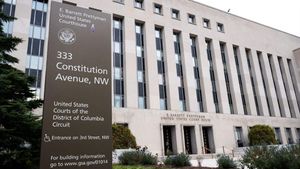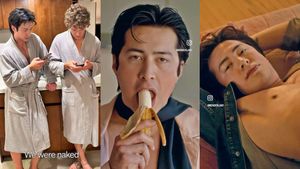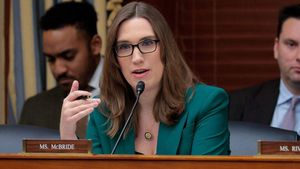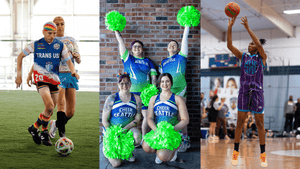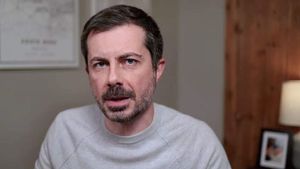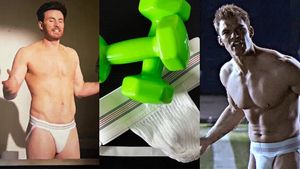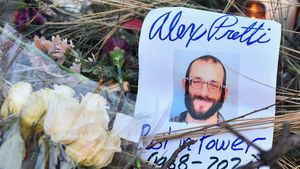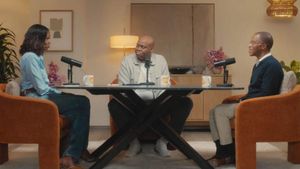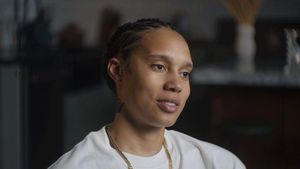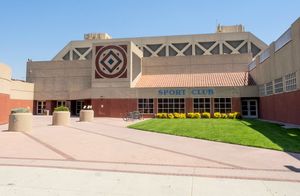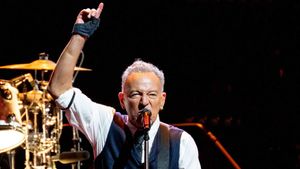Treatment GuideJust DiagnosedSex & DatingAfrican AmericanStigmaAsk the HIV DocPrEP En EspañolNewsVoicesPrint IssueVideoOut 100
CONTACTCAREER OPPORTUNITIESADVERTISE WITH USPRIVACY POLICYPRIVACY PREFERENCESTERMS OF USELEGAL NOTICE
© 2026 Pride Publishing Inc.
All Rights reserved
All Rights reserved
By continuing to use our site, you agree to our Privacy Policy and Terms of Use.
I can't believe it's real. And I can't believe it's true. After an all-consuming yearlong apartment search, which resulted in me having an ulcer, I finally found a place to call my own in ghetto-fabulous Harlem, U.S.A. From the same streets where rappers Cam'ron and Mase wax poetic, I'm hoping to finally recover my health and sort things out. Work my way back to a higher CD4 count and a lower viral load'back to the serenity that I once knew. I moved uptown to the land of Al Sharpton and the world-famous Apollo Theater because, from an economic standpoint, I could barely afford to rent anything else in sky-high New York City that wasn't visually depressing, unsanitary, or too far removed from a decent grocery store and acceptable medical services. But my decision to move here had as much to do with the easy, welcoming smiles toward me by longtime Harlemites, the feel-good soul music'from Martha and the Vandellas to Marvin Gaye'blaring from street vendors' boom boxes, and the opportunity each day to bear witness to the lasting culture of all that is still black and beautiful in America. And all that ain't beautiful. In addition to disproportionately representing other social ills, such as gun violence, Harlem leads the city in AIDS deaths, according to a recent New York health department survey. For every billboard advertisement around the way that shows Magic Johnson explaining why he takes his meds, there's a Harlem resident like me still struggling to make that decision. Lucky for all of us that there's a funeral home on Malcolm X Boulevard whose canopy boasts 'prompt, convenient 24-hour service' for befallen locals and their kin. It's the kind of information that's good to know when you'or people near you'are accosted by a teenage thug waving a gun. That's what happened at the entrance of the very first apartment, a lopsided studio, that I looked to rent in Harlem. Fortunately for me and my small posse of T cells, the li'l gangsta's .38 was aimed at the stoop of would-be neighbors across the street. Just two hours before, an episode of black-on-black violence had left the gunman's friend dead. And now he was back for revenge. 'Y'all can't live no more!' he declared, leaping from the passenger side of a heavily customized economy car, Glock cocked. As his targets scattered, I inched my way toward safety. Sadly, the apartment was the only one I'd seen that had struck a balance between accessibility and affordability and seemed remotely feasible for me to live in. It was better than the one-bedroom in Queens with a dead mouse left in the bathtub. Or the studio in Brooklyn where it was explained that the locks had to be replaced after the front door was kicked in by drug enforcement agents. Maybe a gun-toting hood wasn't so bad. After so many months of searching, I worried that I wouldn't find anything better for the rent. Through a well-connected housing hookup, eventually I did. (You know who you are. Thank you.) Now I'm situated on the most beautifully serene block in all of Harlemworld. I can finally get outside of my own head. Reconnect with the AIDS community. Dream. Wake in the morning without worrying about where I'll live. Make sound decisions about taking meds. And get back to the business of AIDS reporting, to which I am committed. From this place it can happen. I am certain of it. Whitfield is one of the nation's leading journalists reporting on AIDS among African-Americans. A frequent Vibe contributor, he is based in New York City.
From our Sponsors
Most Popular
“So much life to live”: Eric Nieves on thriving with HIV
September 03 2025 11:37 AM
The Talk: Beyond the exam room
August 13 2025 3:15 PM
Messenger RNA could be the key to an HIV vaccine — but government cuts pose a threat
August 20 2025 8:02 AM
It’s National PrEP Day! Learn the latest about HIV prevention
October 10 2025 9:00 AM
Amazing People of 2025: Javier Muñoz
October 17 2025 7:35 PM
The lab coat just got queer
August 21 2025 10:00 AM
The Talk: Owning your voice
August 25 2025 8:16 PM
“I am the steward of my ship”: John Gibson rewrites his HIV narrative
September 16 2025 2:56 PM
Plus: Featured Video
Latest Stories
HIV-positive men stage 'Kiss-In' protest at U.S.-Mexico border
December 01 2025 12:56 PM
What the AIDS crisis stole from Black gay men
December 01 2025 6:00 AM
The Talk: Navigating your treatment
August 01 2025 6:02 PM
The Talk: Starting the conversation
July 25 2025 4:47 PM
Thanks to U=U, HIV-positive people can live long, happy, healthy lives
July 25 2025 2:37 PM
How the Black AIDS Institute continues to fill in the gaps
July 25 2025 1:06 PM
“I felt like a butterfly”: Niko Flowers on reclaiming life with HIV
July 23 2025 12:22 PM
Dancer. Healer. Survivor. DéShaun Armbrister is all of the above
July 02 2025 8:23 PM
BREAKING: Supreme Court rules to save free access to preventive care, including PrEP
June 27 2025 10:32 AM
1985: the year the AIDS crisis finally broke through the silence
June 26 2025 11:24 AM
VIDEO: A man living with HIV discusses his journey to fatherhood
June 10 2025 4:58 PM
Trump admin guts $258 million in funding for HIV vaccine research
June 03 2025 3:47 PM
Grindr is reminding us why jockstraps are so sexy and iconic
May 02 2025 5:36 PM
HRC holds 'die-in' to protest Trump health care cuts
April 28 2025 2:11 PM
Two right-wing Supreme Court justices signal they may uphold access to PrEP and more
April 21 2025 4:10 PM
500,000 Children at Risk: PEPFAR Funding Crisis
April 08 2025 3:51 PM





































